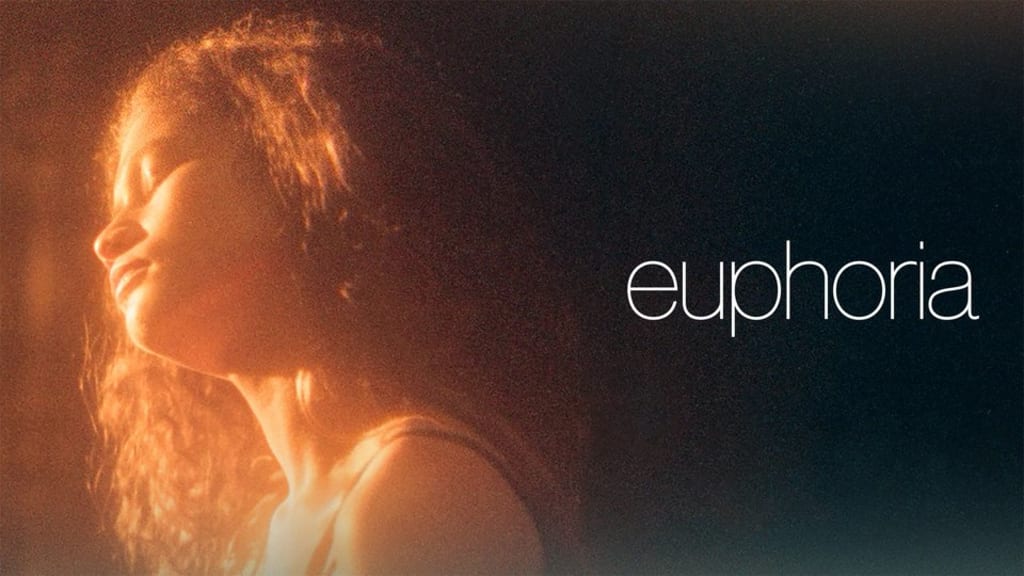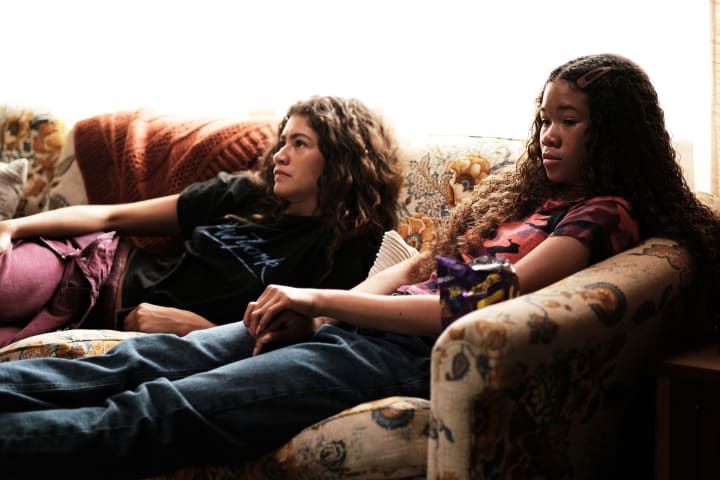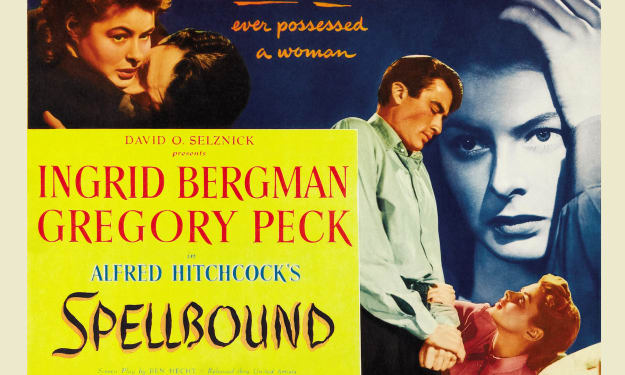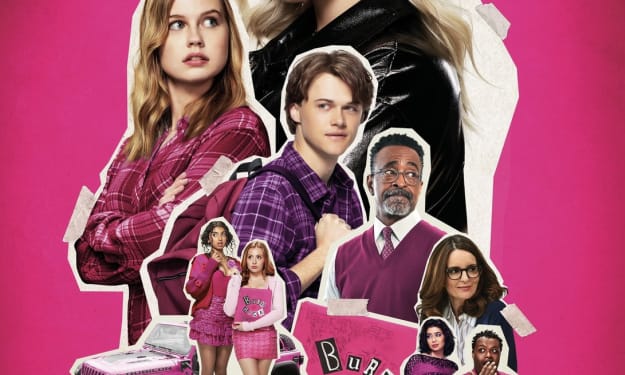
When it comes to a show like Euphoria, there are always going to be drastically different views on the effectiveness of the show and the efficacy of its existence in the first place. But if you take a deeper look at Euphoria as we have come to the conclusion of the second season, you may just find that there are stories and viewpoints being showcased that we don’t see as often as one might hope.
Take Rue, for example. Portrayed gorgeously by Zendaya, season two gave us an even closer look at what can happen to someone who is in the throws of a battle with addiction. We are not spoon fed or coddled, as show creator and writer Sam Levinson takes us deeper into the ripple affect of addiction. We get to see first hand what it is to love an addict. The highs and lows on the way to rock bottom and the resulting attempts to get clean. The pain of relapse, the lies that must be told in order to hide said relapses and the ways in which the person we once knew can begin to erode before our eyes as a result of addiction. It is not an easy path and all too often, we are given only one perspective or the other. Either the story focuses on the effect addiction has on friends and family, or we travel with the characters as they are at war with themselves. What Levinson has done with season two in particular is to pull back the proverbial green curtain, allowing those who have never been through what Rue and her family are experiencing, to get a sense of the painful pieces that don’t get discussed.

This illumination of pain is set up beautifully in episode five, “Stand Still Like The Hummingbird”, as we witness Rue spend her night evading capture.There are glimpses of the warm hearted, thoughtful, kind person she has always been, as we see Rue apologize time and again to people as she runs through neighborhoods, leaving chaos in her wake. We see what a hold her addiction has on her, but that we can never truly outrun ourselves. That beneath the drugs, there remains a great deal of hurt, pain and anger that continue to go unaddressed. The deeper Rue gets, the more drugs she needs to outrun that internal, bottomless well of pain she cannot seem to find the words to encapsulate in order to set herself free, without the drugs she has become reliant upon.
In both this episode and in the following, we get to see that behind the hopeful smiles and encouragement, behind the statements of “we believe in you” and “you can get clean”, there is so much pain. We see how Gia, portrayed devastatingly by Storm Reid, has fallen to the wayside in all of the mess Rue creates. How her grief and needs have to go unmet in order to ensure her sister stays alive. That in effect, Gia is left to raise and care for herself as Rue continues to unravel. We witness the desperation of their mother Leslie, portrayed by Nika King, to find a way to save both of her girls. Her attempts to ensure Gia knows she is loved and important while quite literally chasing Rue down are heartbreaking to witness. The pain and desperation highlighted by the fact that we live in a country with a medical system that all too often fails its patients before they even make it through the front doors.
And perhaps that is what kept me coming back this season more than any other aspect. Seeing Gia on screen attempting to take care of herself as best she can, so her mother can put her focus and energy into saving Rue, is an all too familiar reality for those of us who have a sibling unwilling or unable to attempt to recover from their addiction. We witness the way the world sees them. How the public defines them as their addiction and washes their hands of them, when we know better. When we can still see the person they were, the person they could be if the pain that led them to abuse drugs in the first place were addressed and helped.
That being said, is this rarely seen depiction worth all the downsides that come with a show like Euphoria? A show that had no qualms with employing hyper sexualization, nudity so prevalent it feels more like it is being done for shock value than to further the story, and characters who begin to no longer honor the journeys they have been on. Characters like Ashtray, who we are given a deeper look into his background, only for him to behave in ways that don’t track with any of what he’s exhibited previously. Or Kat, who went from a focal point as we explored what it is to be in a bigger body in a world that does not cater to or appreciate anything that deviates from the fantasy of what a woman’s body ought to be, to what amounts to a hype girl who received far too little innovative storytelling this season.
The question of at what cost are we telling these stories is not one that is easy to escape, and perhaps it should not be. Perhaps open and honest discussions are what we need more of, rather than blindly praising or denouncing a show like Euphoria. Because at the end of the day, art is meant to reflect back culture, to capture moments in history and inspire conversations. Sometimes those conversations include questioning the “system”, the “status quo”, and reflecting upon what we find so that we can better ourselves and grow from the past. Which means it is not only okay, but it is actually important for us as viewers and creators to sit down at the table together in order to ensure that at the end of the day, art remains the focal point. Giving voices to marginalized communities in ways that uplift rather than spectate and further unhelpful stereotypes such as what we see with a character like Nate.






Comments
There are no comments for this story
Be the first to respond and start the conversation.